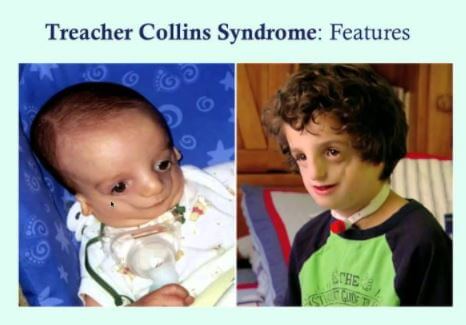
A syndrome is any collection of symptoms and signs that are frequently related to each other and often indicate a certain condition or disease. The word derives from Greek, literally meaning "consensus". A syndrome can appear as a group of signs that are common in a variety of different conditions and diseases. When all of the symptoms or signs of a syndrome occur together and do not seem to be related, this is considered to be suggestive of a cluster.
The first type of syndrome occurs when a number of symptoms are present in different circumstances
These signs usually occur together, but not necessarily in a general setting. For example, if a patient feels a fever for the second time in a week, it could be a sign of strep throat, but it could also be a sign of a more serious health problem. The next type of syndrome occurs when a number of symptoms occur in different circumstances. For example, a patient may feel tired all the time, but then suddenly feel more energized when they go to work. If the temperature suddenly rises without warning, this can also be a sign of the syndrome.
There are many different types of syndromes. Some of them are described below. While each has its own name, they all share one common basic condition.
Postural Syndromes (PST): This syndrome includes a number of symptoms that affect posture
For example, a person who stands and walks a lot may develop osteoporosis because they put too much pressure on their bones due to excessive activity. Because of the nature of the symptoms, postural syndromes are sometimes confused with other, more serious diseases.
Gynaecological Syndromes (Gynaecology): This is a category of syndrome that covers all of the problems that are related to the reproductive system and the digestive system. Most women experience problems with their cervix during their menstrual periods, but some women may have similar problems with their fallopian tubes as well. Many women also have difficulties with their urethra or their bowel movements. In addition, women often have problems with their fallopian tubes and their ovaries as well.
Circulatory Syndromes: Circulatory syndromes are a group of syndromes that involve any problem that affects the blood. Women who have problems with their blood flow in the form of a problem with their menstruation, or who have irregular periods, can be diagnosed with a syndrome based on the symptoms they are experiencing. The most common symptom of this syndrome is anemia.
Metabolism Syndromes: This type of syndrome covers a variety of symptoms that affect the way the body uses energy. People with metabolic syndromes might experience frequent urination. They may also feel fatigued all of the time and feel hungry all of the time. People who experience this syndrome might also have problems with their digestion or appetite. Often, individuals with metabolism syndromes also have difficulty concentrating at work or in school.
Immune System Syndromes: Immune syndromes occur when a person develops an over-active immune system. People who experience this condition may have problems with their joints and their gastrointestinal system. Some people with this syndrome can also suffer from allergies and respiratory problems. These types of syndromes can often be diagnosed through laboratory tests.
Nutritional Syndromes: Nutritional syndromes cover a variety of symptoms that cause problems with the way that a person's nutrition is handled. Many of the symptoms of this syndrome are related to how a person's body processes nutrients and the foods that they eat. An individual who suffers from nutritional syndromes might have trouble digesting their food and not be able to absorb the right vitamins and nutrients. in their food.
Muscle-Wasting Syndromes: Muscle-Wasting Syndromes involve having problems with the body's ability to retain and repair muscle tissues. These symptoms might be connected with an infection, such as arthritis. When this syndrome occurs, an individual might notice that he or she can feel less energetic. or that there are times when they just cannot move. move their bodies.
Some of these syndromes might not be easily recognizable, so it is important to be aware of what the symptoms that you are experiencing are and to look for other, more common names. If your doctor is unsure what the syndrome is, he or she can refer you to a specialist.